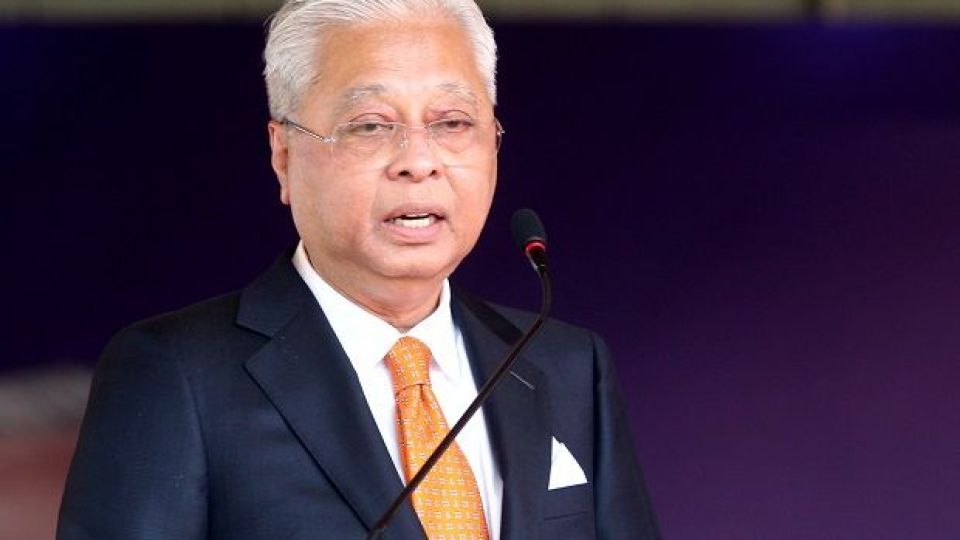July 6, 2022
KUALA LUMPUR – ATTENDING a Barisan Nasional dinner five days ago, Datuk Seri Ismail Sabri Yaakob made an unusual appeal.
He asked Barisan parties not to criticise him. If they did, he said it would be at the coalition’s expense at the ballot box.
It’s obvious the pressure on the Prime Minister to call for a general election is mounting.
Ismail Sabri has clearly sensed the growing impatience among some senior Umno members with their vice-president.
The Dewan Rakyat’s term expires on July 15, 2023, and elections can be held as late as mid-September but the reality is that he can’t hang on too long as prime minister, even though some Cabinet members insist on a full term.
But while Ismail Sabri keeps everyone guessing, political parties are gearing up for the polls.
Nearly a fortnight ago, Umno secretary-general Datuk Seri Ahmad Maslan announced that Barisan was ramping up preparations and mobilising its election machinery across the nation.
On the other side, PKR deputy president Rafizi Ramli launched his “Ayuh Malaysia” campaign on the first day of July.
He is expecting Parliament to be dissolved as early as August or September to allow Budget 2023 to be tabled by the new government.
But partner DAP is not following suit. The party’s secretary-general Anthony Loke told senior editors at a forum yesterday that he does not think the polls will be called this year, with the party’s election machinery now only on “gear two”.
“We have started physical campaigns in states like Perak, with about 30 small ceramah in the past month,” Loke said, adding that fundraising dinners would be organised across the country.
Warisan president Datuk Seri Shafie Apdal has ramped up his live streaming on Facebook, hoping to reach a wider audience.
For some time now, a section of voters is convinced the next government must have a two-thirds majority so it can focus seriously on rebuilding the economy without having to look over its shoulders every now and then.
There are those who wistfully tell this writer they are wishing for the days when the government had a bigger control of Parliament.
The constant politicking has peeved many, and voters are generally just sick of the clowning by politicians.
But is there a party or coalition which can claim to have enough support to muster the magical two-thirds majority of 148 of the 222-seat Parliament?
It has been done at state level, with Barisan getting the super majority in both Johor and Melaka.
That could be an indication of things to come, a sign that Barisan is ready to rule again after being soundly defeated in the last GE.
In May 2018, it could only win 79 parliamentary seats and was further humiliated when a wave of defections shortly after left the coalition with only 41 parliamentary seats. Component parties also deserted it, with the number dropping from 13 to just four.
Barisan, however, managed to regain some ground in 2019 following victories in several by-elections and its fortunes finally turned last year when it secured a two-thirds majority in the Melaka election.
Then came the Johor election in March this year. But both victories were not comprehensive as Barisan won largely because the Opposition was split down the middle.
In Melaka, Barisan led the popular vote with 122,741 votes, followed by Pakatan Harapan’s 114,457 and Perikatan Nasional’s 77,731.
It was a similar situation in Johor, with Barisan getting 599,753 votes to Perikatan’s 334,457 and Pakatan’s 284,969.
The results of both elections showed that Barisan can secure a large majority – as long as Perikatan and Pakatan remain at odds.
There are also varying views on feasibility of polls in the middle of a surging inflation.
Firstly, elections are expensive. And secondly, a coalition must win with a two-thirds majority if it is to weather the turbulence ahead.
Only a powerful government can draw up radical measures to spur the economy in the aftermath of the Covid-19 pandemic.
Otherwise, foreigners will continue to have reservations if they should invest in a country with flip-flopping policies drafted by strange bedfellows in government.
With elections being a costly affair, it may not be the right time to hold the polls. Malaysia is also likely to face a recession due to the global supply chain disruption triggered by the Russia-Ukraine conflict and an uncertain global economy.
The state elections since 2020 have already cost RM420mil.
The Sabah election cost RM130mil, Sarawak’s RM149mil, while RM45mil was spent on the Melaka polls and RM96mil for the Johor election, revealed de facto law minister Datuk Seri Dr Wan Junaidi Tuanku Jaafar.
The political waters, meanwhile, remain choppy. A recent meeting between Perikatan chairman Tan Sri Muhyiddin Yassin and Ismail Sabri last Saturday has riled up Umno MPs.
The two leaders apparently discussed several important matters, including filling up the deputy prime minister’s post.
The Umno MPs are not pleased, criticising Muhyiddin as being insensitive to various economic issues.
Cabinet appointments, they said, were the prerogative of the Prime Minister and there was no need to pressure him.
If the prime minister continues to be held to ransom by MPs with a personal agenda, then GE15 should be called to end the infighting.
Many in Umno say the PM must strike while the iron is hot, especially when the Opposition continues to remain in disarray. Otherwise, it may be years before Barisan will be able to secure a two-thirds majority.
The ball is now in Ismail Sabri’s court. So far, though, he has kept the cards close to his chest.

